NEWS
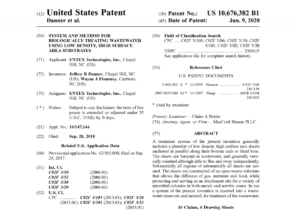
US Patent Office Recognizes Another Entex Innovation
On June 9th Entex was issued a patent for our WavTexTM fixed-film secondary treatment system and innovative EnTextileTM growth media, System and Method for Biologically Treating Wastewater Using Low Density, High Surface Area Substrates.
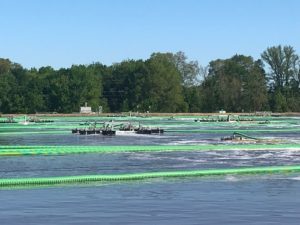
Saving Energy and the Environment on the Gulf Coast
A chemical plant in the gulf coast faced several challenges in their wastewater plant. They routinely experienced high-strength influent with TKNs as high as 450 mg/L and CODs of over 5,000 mg/L.
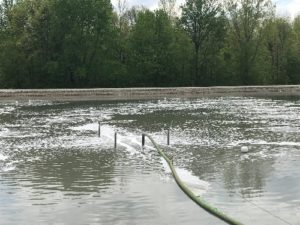
Webitats in Wintertime: Rockford, OH
When friends or family ask me how a wastewater treatment plant works, I often start by telling them that the process is fundamentally the same as what happens in any pond, river, lake, or stream. The bacteria eat the waste while using up oxygen and they do it faster if it is warmer. Given that we know that the most important parameters in treating the
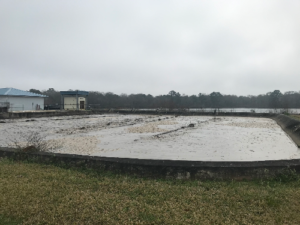
A Tale of Two Lagoons – Part I
Entex recently received purchase orders for two lagoon upgrades, one in West Virginia and one in Louisiana. Despite their similarities in flow, size, and effluent requirements, the best process solutions for the two lagoons are not the same due to differences in climate and topography.
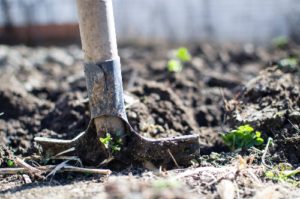
Shovel Ready
While everyone’s focus at the moment is targeted at limiting the spread of the corona virus to save lives and to avoid overwhelming our health care system, in the months and years to come we will need to rebuild the economy and deal with unemployment. I am an engineer not an economist, but it certainly seems like economic crises are happening more frequently and are more severe as time passes.

A Shout Out to Our Water and Sewer Workers
Here in the midst of the global COVID-19 pandemic, clean and consistent water supplies are critical to our collective health. One of the most important ways that we can protect ourselves and others is washing our hands. So, the next time we turn on the tap to wash our hands, I suggest we all consider the employees at our local water and sewer system.
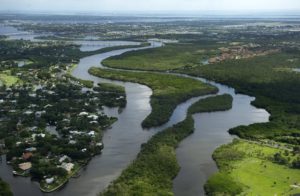
Water Wars and Peace
We are seeing increasing signs of water scarcity, even here in the eastern part of the US. Yes, water is a renewable resource, but we can help Mother Nature. And Entex is doing its part.
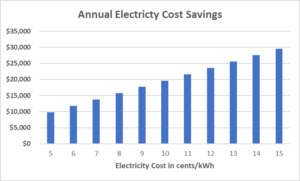
Electricity Savings from Octopus Floating Aerators
The vast majority of aerated lagoons employ floating mechanical aerators to supply mixing and dissolved oxygen. While these aerators do have the advantage of relatively low upfront capital, the cost of the electricity to run them can be quite high. In addition,
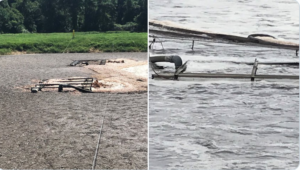
Before & After – WavTex™
A chicken processing plant’s wastewater treatment lagoon during and after the installation of six floating WavTex modules is shown in the photos. The existing floating aerators did not provide enough mixing or
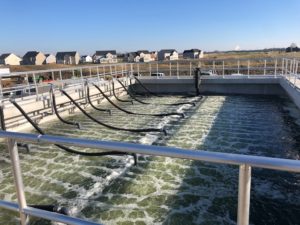
Middletown, DE Webitat™ Installation Announcement
The rapidly growing Town of Middletown, DE needed a new 1.0 MGD wastewater treatment system to achieve effluent limits of < 2 mg/L ammonia and < 10 mg/L Total Nitrogen (TN) prior to application to the rapid infiltration basins (RIBs).
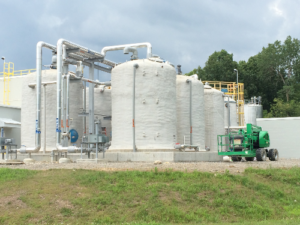
Entex Packaged Plants
While the construction of wastewater facilities that treat tens of millions of gallons a day attract a lot of attention, the vast majority of wastewater plants are much smaller and serve small communities, housing developments, industrial facilities, resorts, etc. At first glance,
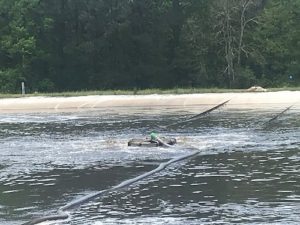
Greater Ouachita, LA Octopus Installation Announcement
The Southeast Treatment plant in Greater Ouachita, LA (0.45 MGD) has three lagoons in series, two partial mix and one facultative. The floating surface aerators in the first two lagoons were not able to maintain adequate DO for treatment and low mixing energy allowed for significant sludge accumulation.
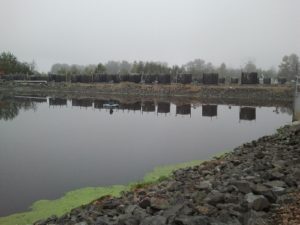
Webitat Upgrade Avoids Expensive Plant Shutdown
Snohomish WWTP is a 1.2 MGD plant consisting of four aerated lagoon cells located approximately 30 miles north of Seattle where heavy rainfall events are common. As a result, maximum month daily flows can peak at up to 7.9 MGD, decreasing biological treatment and in extreme cases, causing the slow growing nitrifiers to wash out.
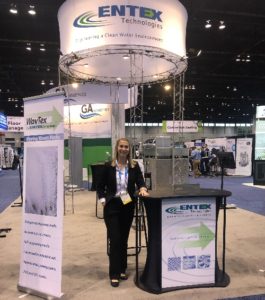
Impressions from My First WEFTEC
Last week I attended my first WEFTEC at McCormick Place in Chicago. It was fascinating to attend this event as a young project engineer. With so much to see and experience, WEFTEC gave me
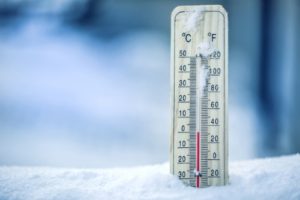
Cold Weather Nitrification for Wastewater
As the fall approaches in North Carolina, there are two certainties. The Blue Ridge Parkway will be packed with RV’ers following the changing colors of the leaves and nitrification rates in our wastewater treatment plants will start to slow down. As water temperatures drop below 10 ◦C, the metabolisms of the microorganism responsible for nitrification begin to slow down and
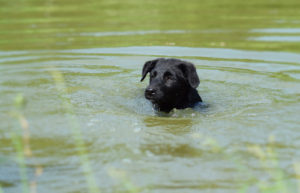
Nutrient-Rich Blue-Green Algae and its Effects on Your Pets
The past few weeks, I have been seeing more and more about blue-green algal blooms. I’d find numerous online posts of devastated dog owners having to say goodbye to their furry friends after spending a day playing fetch in a lake or river. I couldn’t help but ask myself: What’s causing this? Why am I hearing about this so suddenly? And why are dogs the ones falling victim to these harmful algae blooms?
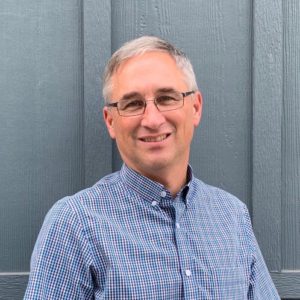
Meet Jeff Danner!
Jeff Danner is Entex’s Vice President of Engineering. Jeff leads Entex’s technical staff including process design, engineering, project execution, and R&D.
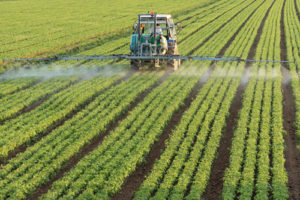
Observations from WEF 2019 Nutrient Removal and Recovery Symposium
Last week I had the chance to attend the Water Environment Federation 2019 Symposium on Nutrient Removal and Recovery Symposium in Minneapolis, MN. It is always refreshing to get away from the daily rhythm of engineering calculations and project execution to step back and
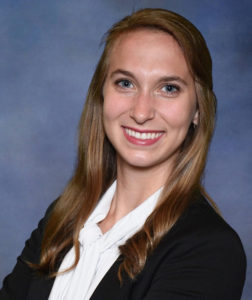
Meet Lauren Takitch!
Entex is pleased to welcome Lauren Takitch to the team. Lauren began with Entex in January of 2019 as a Project Engineer. In this role, she is responsible for process design and simulation as well as project execution and start-up.
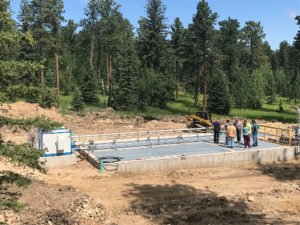
One Year Anniversary for Powder House Pass, SD
A new housing development in Powder House Pass, SD needed a new 25,000 gpd treatment plant to meet an effluent requirement of <1.0 mg/L NH3-N.

50th Anniversary of the Cuyahoga River Catching on Fire
Sometimes out of tragedy good things arise. This week in 1969 the Cuyahoga river caught on fire. No one knows for certain, but many believe the sparks from a rail car crossing the river was enough to ignite the oil and gas that covered the river. It happened periodically in the years prior to the 1969 river fire, but increasing awareness of damage being done to our environment created a sensitivity that helped trigger positive change.